NCTE members who have served current or recent terms on the Orbis Pictus (Nonfiction for Children) and Charlotte Huck (Fiction for Children) Book Awards Committees were invited to share comments about their experiences of this work, as a companion piece to the September Council Chronicle interviews with committee chairs Denise Dávila (Orbis Pictus) and Desiree W. Cueto (Charlotte Huck).
 Patrick Andrus, Prairie View Elementary School, Eden Prairie, Minnesota (Member, Charlotte Huck Award Committee)
Patrick Andrus, Prairie View Elementary School, Eden Prairie, Minnesota (Member, Charlotte Huck Award Committee)
Being a member of the Huck Award Committee has been one of the most rewarding experiences in my life. The collaboration with the other members has opened my eyes to the world around me, allowed me to think about the stories in a new way, and has enriched my personal and professional reading beyond all measures. The conversations, dialogue, questions, and issues brought up by individuals on the committee; allow me to go deeper within myself, stretch my thinking, and bring the stories closer to my heart and mind.
Being a teacher myself, this experience has enriched not only my life but the lives of my students over the last two years. The moments I share a new picture book and/or novel with my fourth-grade readers have become more meaningful and relevant because of my committee work. After a conversation about a certain text, I can take that book and use it with actual young readers and writers to get their true reaction. Adults having truthful conversations is important, but even more important are the truthful moments I have had with my fourth graders discussing, appreciating, and wondering around a picture book or chapter book. The books I have shared with my students that have been award winners seem to have a larger impact on them. I believe they know the importance of the particular text because adults have taken the time and chosen it as the best of the best.
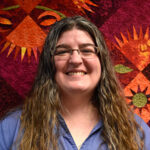 Donna Bulatowicz, Montana State University–Billings (Member, Charlotte Huck Award Committee)
Donna Bulatowicz, Montana State University–Billings (Member, Charlotte Huck Award Committee)
Serving on the Charlotte Huck Book Award Committee is highly rewarding in a variety of ways, both personally and professionally. Most rewarding is the opportunity to recognize children’s books that “[have] the potential to transform children’s lives by inviting compassion, imagination, and wonder” (NCTE, 2020). Our world grows richer through compassion, imagination, and wonder, and books can change perspectives, strengthen identity, bring joy, and much more. The chance to honor those that inspire “compassion, imagination, and wonder” and thus help adults and children find these books more easily is truly rewarding.
A few years ago, I gave a presentation at a conference about the importance of inclusive children’s books and included a variety of children’s book awards and the recent winners and honors. About 10 teachers and teacher candidates who attended the presentation stayed to talk with me. The main theme of the conversation was that they were really excited to know so many awards existed that would help them find books to serve as mirrors, windows, and doors (Bishop, 1990) for their students. One person who stayed after the others left told me tearily that they had never known there was an award for books with people like them. They told me that they were going to order some books on that award list and have them in the classroom so that none of their students would feel like they did—alone and invisible. The award-winning books and book award programs can help people find representations of people like themselves as well as those who differ from themselves.
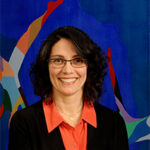 Amina Chaudhri, Northeastern Illinois University, Chicago (Member, Orbis Pictus Award Committee)
Amina Chaudhri, Northeastern Illinois University, Chicago (Member, Orbis Pictus Award Committee)
One of the most rewarding aspects to being on the Orbis Pictus Award Committee has been the opportunity to connect and collaborate with the other committee members. Over the course of the year, through regular communication, our discussion of the books invariably provides perspectives I had not before considered, and an ongoing deepening of the importance of nonfiction literature for children. The day of deliberation—part of the award selection process—is a distillation of that longer process, when we come together to make a decision so important that it comes down to the parsing of words and ideas that, although different, yet result in agreement.
Since being on the committee, I have started to use Orbis Pictus books in my graduate and undergraduate teacher preparation courses. Invariably, students will comment on the beauty, quality, and content of the books. When they shake their heads in wonder that they—as adults—learned something they hadn’t known before from children’s books, I know they are likely to take that experience into their own classrooms. That has to be the most hopeful feeling!
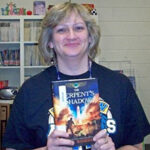 Suzanne Costner, Fairview Elementary School, Maryville, Tennessee (Member, Orbis Pictus Award Committee)
Suzanne Costner, Fairview Elementary School, Maryville, Tennessee (Member, Orbis Pictus Award Committee)
The most rewarding thing about being a part of the Orbis Pictus committee was working with the other members to put together the list of the Winner, Honor, and Recommended books. Knowing that our decision would guide others to outstanding titles to use with students was very satisfying.
I took one of the books under consideration and shared it with the fifth-grade classes at my school. The students were mesmerized by the narrative and kept asking, “This really happened?” It was wonderful to provide a book that not only met the curriculum standards but captured the imagination of the listeners so deeply that they had a hard time believing it was fact and not fiction. Books that connect with students on that level help to make the information memorable and bring the content to life.
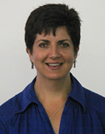 Cecilia Espinosa, Lehman College/CUNY, Bronx, New York (Member, Charlotte Huck Award Committee)
Cecilia Espinosa, Lehman College/CUNY, Bronx, New York (Member, Charlotte Huck Award Committee)
Being part of the Huck Award Committee gives you the opportunity not only to read the most recent fiction books for children in early childhood and middle grades, but also to discuss the books in relationship to the Huck Award criteria with the committee members through monthly meetings. The members are very knowledgeable about children’s literature, and are also a diverse group, ensuring that these discussions are enriched through a multiplicity of perspectives.
Our committee leadership is similarly committed to ensuring that the selected books reflect the diversity of children in US schools. When I looked at the Huck Award books for 2019/2020, I marveled at the many voices reflected in the selection. The committee’s selection process is rigorous to ensure that the stories are captivating, that they have carefully crafted language, that they invite the reader to understand and imagine the world in new ways, and that the words and illustrations are powerful and free of bias. Stories that help children connect with their own humanity and that of others. Without doubt, the selections of the Huck Award Committee offer teachers and children books that have tremendous potential to strengthen their identities as readers, as well as the opportunity to experience “grand conversations.”
 Daryl Grabarek, PS 89/IS 289 and School Library Journal, New York, New York (Past Member, Orbis Pictus Award Committee)
Daryl Grabarek, PS 89/IS 289 and School Library Journal, New York, New York (Past Member, Orbis Pictus Award Committee)
Serving on the Orbis Pictus Committee with a group of inspiring professionals from across the country has been one of the highlights of my career. The quality of the conversation and debate and the perspectives and thoughtful insight of the committee members and chairs have taught me so much as a reader, reviewer, and committee member. The work is exciting, the rewards are high, and the professional relationships formed, meaningful.
The award-winning authors’ talent, artistry, and commitment to excellence is exemplified in so many ways in their books, but brought to home in the passionate awards ceremony acceptance speeches. Sharing these gems of reflection and insight is one more path to introducing the books to children.
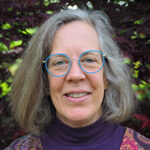 Mary Lee Hahn, Dublin City Schools, Ohio (Past Member, Charlotte Huck Award Committee)
Mary Lee Hahn, Dublin City Schools, Ohio (Past Member, Charlotte Huck Award Committee)
Community is, for me, the most rewarding thing about the Huck Award Committee. The committee is like a book club on steroids! There is SO much reading, but the conversations are SO rich. Because of the intentional diversity of the committee, I learned to read with new lenses. As a fifth-grade classroom teacher on a committee with university professors, it was validating for my experiences in the classroom to be held in equal esteem with their levels of scholarship.
The moment that captures for me why award-winning books and book award programs have value for teachers and children is the NCTE Book Awards Luncheon. On the designated day before the luncheon, we spend the entire day choosing the winner and honor books and preparing our slides for “the Big Reveal.” At the event, there’s the excitement of seeing our work come to fruition, but the reason I’m picking this moment is for the excitement the list creates in that room. We might spotlight a book that never made it to someone’s radar, and now they know about it, will find and read it, and will pass it along. The award causes these ripples: first the splash of the award, but then the books we choose have new readers who look at the book with the new lens we’ve given it—the criteria in the Charlotte Huck Award—and who take it to their students with new intention.
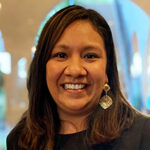 Sanjuana Rodriguez, Kennesaw State University, Kennesaw, Georgia (Member, Orbis Pictus Award Committee)
Sanjuana Rodriguez, Kennesaw State University, Kennesaw, Georgia (Member, Orbis Pictus Award Committee)
The most rewarding aspect of being a part of the Orbis Pictus Award Committee is having the opportunity to share high-quality books with teachers. I have also enjoyed the collegiality among the committee members. Everyone on the committee takes their role very seriously and works diligently to make sure that all books are read thoroughly. I have loved having conversations about the books under consideration.
I started my career as a kindergarten teacher. I remember my five-year-old students being very interested in the seals that the books had on the cover. At that time, we engaged in conversations about why books received those book award seals. Because of those discussions, my kindergarten students understood the value of an award-winning book and actively sought them out.
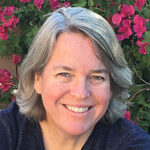 Julie Waugh, Zaharis Elementary School, Mesa, Arizona (Past Member, Orbis Pictus Award Committee)
Julie Waugh, Zaharis Elementary School, Mesa, Arizona (Past Member, Orbis Pictus Award Committee)
The most rewarding part of being a member of the Orbis Pictus Award Committee was sharing all of the new books in the nonfiction children’s book world right now with students and colleagues. It was a gift to be an ambassador for children’s nonfiction, knowing that students and teachers read and shared books about the world they may not have otherwise found. Talking books with amazing committee colleagues with a wide range of perspectives and expertise around the same table was equally rewarding. I have never learned so much about nonfiction books before, and I have never learned more about the world.
Watching the NCTE Book Awards Luncheon winner announcements with the group of students who helped me read and recommend books for the Orbis Pictus Award had the same feeling as watching the Academy Awards. Kids were that excited about nonfiction books and which one would win. These students felt a part of something much bigger than reading the wonderful books—that’s what book awards can do. Think about what would happen if we could create that kind of buzz and excitement for all kids around nonfiction books!
Did you know NCTE members can submit titles for the NCTE Children’s Book Awards? Learn more about the awards and how to submit here!
It is the policy of NCTE in all publications, including the Literacy & NCTE blog, to provide a forum for the open discussion of ideas concerning the content and the teaching of English and the language arts. Publicity accorded to any particular point of view does not imply endorsement by the Executive Committee, the Board of Directors, the staff, or the membership at large, except in announcements of policy, where such endorsement is clearly specified.

